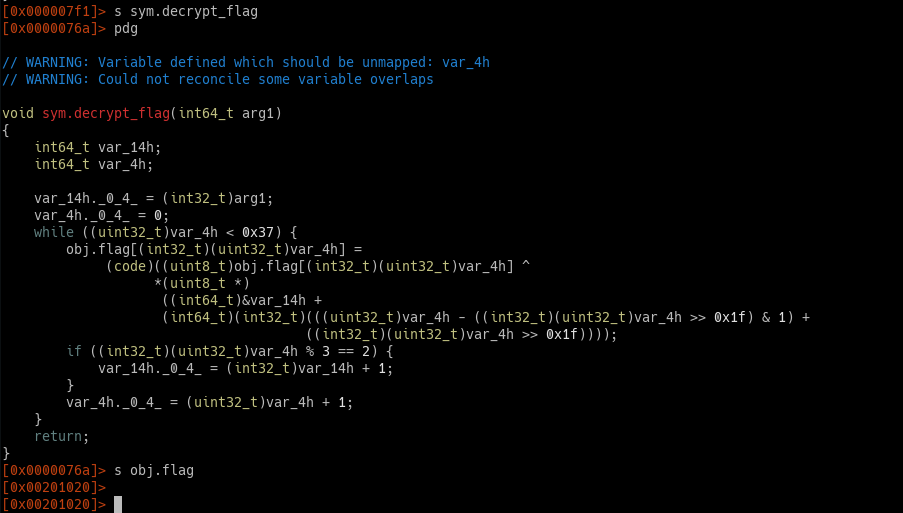Execute Arbitrary Function With Revenge
Want to execute just a function inside a binary? Look no further
Execute an arbitrary function in any binary
This tutorial shows you how to execute functions in any binary. So you don’t have to use ctypes.CDLL
Recently I get into a problem that I want to execute a function in a binary. The binary I’m analyzing is a fucked up binary, the header and the main function is corrupted, but some functions are executable. So there is a little chance for me to debug the binary or run it from the entry point.
So I have a few options:
Copy instructions, emulate them
Copy instruction by rewriting it. I can easily fail in 2 language problems. For example, I prefer to write code in Python, but how can I translate SAR(Arithmetic Shift) in ASM to Python? No, I want it quick.
Try to execute it by manipulating Instruction Pointer (EIP/RIP)
Time after time I keep running into this problem, once, I use ctypes.DLL to get rand number, but that binary I was working with have custom rand so I can’t call the alternative rand in libc.
Life is so boring to repeatedly do the same thing over and over again.
Recently I found a framework write on top of Frida, I can run on any environment as long as you can execute the binary, (ARM, Linux, Windows), so that a good thing. Imagine you’re trying to reverse a check_password in ARM router, so you can just use a Raspberry Pi as environment and brute the password. No re-write needed.
Wanna see how effective this method is ?
First, I give you a binary.

This binary is taken from PicoCTF training platform.
Second, try to think how you can solve the binary as fast as possible. . . . Here is my solution:
You can see how it does by running this command

asciinema play execute_any_function/need-for-speed_asciinema.cast
I actually solve this challenge in 2 minutes, the binary I haven’t seen before.
So how the script works, you may wonder why.

Here is the recap how binary works, in main() function
It will have to run get_key, then print_flag
In
get_key, the calculate key and store result to global memoryobj.keyIn
print_flag, it decrypt_flag by using the globalobj.keyIn
decrypt_flag, it’s a bunch of instructions that I don’t want to touch it, anyway it writes result toobj.flag. So I need that address,s obj.flaggive me the address0x00201020.
So the flow to solve this challenge is to make call :
decrypt_flag parameter must be obj.key, obj.key value is 0xed0cc64a from return value calculate_key
Then the flag is automatically decrypted. Need to grab it out.
Init the binary
Grab the address of decrypt_flag and execute it
Grab the flag from memory and print it out.
See something weird, the framework handle PIE nicely. Lovely. The address I input is taken directly from Radare2.
Create a mapping of a function
Have you ever get so tired that you have to check all input and output spaces of a function by rewriting the function. While I was poking Pico Mini challenge, I see otp challenge that kinda annoying, since Python can’t map SAR instruction. (Please let me know if you know how). So I use Revenge, create a mapping of jumble function is so easy.
The binary can be found here

So I just don’t care what valid_char I need to feed into the binary, I just brute all of them. Thus, same for jumble function.
From the mapping, you can easily create a mapping (or dict-like in Python) to solve the challenge
So you can easily map form a→b. Like Python Dict, with the help of Z3, I can easily create an equation and solve the entire program.
This can be applied to other binary as well.
Conclusion
TL;DR
Pros:
Execute an arbitrary function in any binary
Easy interface, handle PIE, easy to grab memory.
Cons:
Can’t execute individual instruction
I’m kinda happy that I don’t have to run into the same problem over and over again.
Thank you for reading.